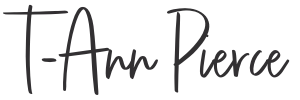Welcome to the New Year!
Before you get swept up in the latest wellness craze, let me stop you right there. Guess what you don’t need in 2025? A dopamine detox.
That’s right—there’s a ‘new’ trend making the rounds, and it’s called dopamine detoxing (or dopamine fasting). The pitch is tempting: by abstaining from impulsive behaviors like binge eating, doom scrolling, or anything that gives you instant gratification, you can supposedly reset your brain, break bad habits, and become a brand-new person.
Sounds amazing, doesn’t it? Just stop doing the things that make you happy, and voilà—a whole new you in three months. Easy peasy! Except… it’s not true. Let’s break this down before you dive headfirst into the hype.
The Science Behind Dopamine: What You Need to Know

First, let’s clear up a big misconception: there’s no such thing as a dopamine detox.
Dopamine isn’t some toxin that’s clogging up your system and ruining your life. In fact, it’s essential for survival. Your body produces dopamine naturally, and it’s responsible for things like movement, sleep, eating, falling in love, and experiencing pleasure.
Without dopamine, life would come to a screeching halt. We’d lose our motivation, stop connecting with others, and miss out on all the little joys that make life worth living—like your first sip of coffee in the morning or laughing with a friend. So, no, dopamine isn’t the enemy.
What’s Really Behind This Trend?
The idea of resisting instant gratification to make healthier choices isn’t new. In fact, it’s the foundation of Cognitive Behavioral Therapy (CBT). The real goal isn’t to reduce dopamine; it’s to change how we respond to impulses and distractions. And that’s a very good thing!
CBT teaches us to sit with discomfort, resist unhealthy urges, and make decisions that align with our long-term goals. But let’s be clear: this has nothing to do with detoxing dopamine. It’s about retraining our habits—and that takes time, patience, and consistency.
Breaking Habits the Right Way
If you’re ready to ditch some bad habits this year, here’s how to approach it in a way that’s sustainable and healthy:
1. Identify Your Time Drainers
Start by pinpointing one or two activities that are draining your energy or eating up too much of your time. Maybe it’s late-night binge eating, endless gaming sessions, or scrolling on your phone until 2 a.m.
2. Set Realistic Limits
Decide when and how often you want to reduce or stop these activities. Be realistic! Whether it’s an hour a day, a week, or a month, start small. Remember, slow and steady wins the race.
3. Replace the Habit
Don’t just cut something out—replace it with something that feels good. Instead of doom scrolling, try going for a walk, playing with your dog, or catching up with a friend. Positive replacements make the process less painful and more enjoyable.

4. Track Your Progress
Keep a journal or take notes to track your triggers, challenges, and wins. Writing things down helps you stay accountable and gives you insights into what’s working and what’s not.
5. Reflect and Adjust
When your experiment ends, take stock. What worked? What didn’t? Were you able to stick to your plan? Use these reflections to refine your approach or decide if you want to extend your efforts.
Why This Approach Works
The truth is, breaking habits isn’t about denying yourself pleasure or ‘detoxing’ from dopamine. It’s about slowly retraining your brain to find joy and motivation in healthier, more productive activities.
Cold-turkey abstinence and self-denial might sound dramatic and effective, but they’re rarely sustainable. On the other hand, small, steady changes give you the best chance for long-term success.
The Bottom Line
The idea of a dopamine detox is a catchy but misguided attempt to rebrand what we already know works: Cognitive Behavioral Therapy.
So, if you’re ready to tackle bad habits in the New Year, remember this: feeling good is essential. Don’t cut joy out of your life in an effort to change your habits. And if you need a little extra help, there’s no shame in working with a therapist, coach, or counselor to stay on track.
Let this year be the year of realistic, sustainable changes—no detox required.




